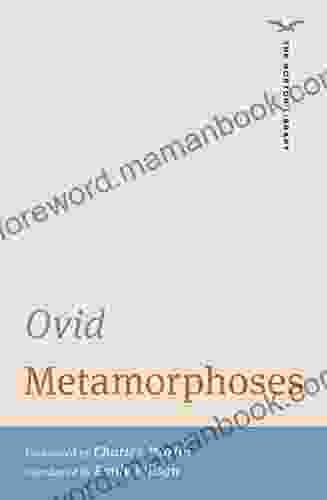After War: The Political Economy of Exporting Democracy

The end of the Cold War and the collapse of the Soviet Union led to a surge of optimism about the possibilities for democracy promotion around the world. With the threat of nuclear war receding, Western policymakers and scholars alike believed that the time was ripe to spread the benefits of democracy to countries that had long been denied them.
4.7 out of 5
| Language | : | English |
| File size | : | 2129 KB |
| Text-to-Speech | : | Enabled |
| Word Wise | : | Enabled |
| Print length | : | 248 pages |
However, the experience of the past two decades has been more mixed than many had hoped. While some countries have successfully transitioned to democracy, others have experienced setbacks or even outright failures. This has led to a growing debate about the best way to promote democracy in post-conflict societies.
In this article, we explore the political economy of exporting democracy after war. We examine the motivations for intervention, the costs and benefits of different approaches to democratization, and the challenges of sustaining democratic institutions in post-conflict societies. We argue that the success or failure of democracy promotion efforts depends on a variety of factors, including the nature of the conflict, the level of development of the recipient country, and the international context.
The Motivations for Intervention
There are a number of reasons why countries intervene in post-conflict societies to promote democracy. Some of these reasons are altruistic, such as the desire to help people who have suffered from war and oppression. Others are more self-interested, such as the desire to secure access to resources or to prevent the spread of instability.
In some cases, countries may intervene in order to protect their own national security interests. For example, the United States intervened in Afghanistan after the 9/11 attacks because it believed that the Taliban regime was providing a safe haven for terrorists. In other cases, countries may intervene in order to promote regional stability. For example, the European Union has intervened in a number of countries in the Balkans in order to prevent the region from descending back into war.
Whatever the motivations for intervention, it is important to recognize that the decision to promote democracy in a post-conflict society is a complex one. There are a number of factors that must be considered, including the nature of the conflict, the level of development of the recipient country, and the international context.
The Costs and Benefits of Different Approaches to Democratization
There are a number of different approaches to democratization that have been used in post-conflict societies. Some of these approaches have been more successful than others.
One approach to democratization is to hold elections as soon as possible after the conflict has ended. This approach is often favored by Western policymakers because it is seen as a way to quickly establish a legitimate government and give the people a voice in their own future. However, holding elections too soon can be risky, especially if the country is still unstable.
Another approach to democratization is to focus on building democratic institutions before holding elections. This approach is often favored by scholars and development practitioners because it is seen as a way to create a more sustainable democracy. However, building democratic institutions can be a slow and difficult process, especially in countries that have been ravaged by war.
The best approach to democratization will vary depending on the specific circumstances of the country in question. In some cases, it may be possible to hold elections quickly and successfully. In other cases, it may be necessary to focus on building democratic institutions before holding elections.
It is also important to consider the costs and benefits of different approaches to democratization. Holding elections can be expensive, and there is no guarantee that they will be successful. Building democratic institutions can also be expensive, and it can take a long time to see results.
When deciding on the best approach to democratization, it is important to weigh the costs and benefits carefully. The goal should be to choose the approach that is most likely to lead to a sustainable democracy.
The Challenges of Sustaining Democratic Institutions in Post-Conflict Societies
Even if democracy is successfully established in a post-conflict society, there are a number of challenges that must be overcome in order to sustain democratic institutions. These challenges include:
- Weak institutions: Post-conflict societies often have weak institutions, which can make it difficult to sustain democratic governance. This is because war can damage or destroy the institutions that are necessary for democracy to function, such as the judiciary, the legislature, and the civil service.
- Corruption: Corruption is another major challenge to sustaining democratic institutions in post-conflict societies. This is because war can create opportunities for corruption, and it can also weaken the institutions that are needed to combat corruption.
- Violence: Violence is another major challenge to sustaining democratic institutions in post-conflict societies. This is because war can create a culture of violence, and it can also make it difficult for people to participate in the political process.
These are just some of the challenges that must be overcome in order to sustain democratic institutions in post-conflict societies. These challenges are significant, but they are not insurmountable. With the right support, post-conflict societies can overcome these challenges and build sustainable democracies.
The promotion of democracy after war is a complex and challenging task. There is no one-size-fits-all approach, and the best approach will vary depending on the specific circumstances of the country in question. However, there are a number of lessons that can be learned from the experiences of the past two decades.
First, it is important to recognize that the promotion of democracy is a long-term process. It takes time to build democratic institutions and to create a culture of democracy. Second, it is important to be patient. There will be setbacks along the way, but it is important to stay the course. Third, it is important to be flexible. The best approach to democratization will vary depending on the specific circumstances of the country in question. Fourth, it is important to be realistic. There is no guarantee that democracy will succeed in every post-conflict society. However, with the right support, post-conflict societies can overcome the challenges they face and build sustainable democracies.
4.7 out of 5
| Language | : | English |
| File size | : | 2129 KB |
| Text-to-Speech | : | Enabled |
| Word Wise | : | Enabled |
| Print length | : | 248 pages |
Do you want to contribute by writing guest posts on this blog?
Please contact us and send us a resume of previous articles that you have written.
 Top Book
Top Book Novel
Novel Fiction
Fiction Nonfiction
Nonfiction Literature
Literature Paperback
Paperback Hardcover
Hardcover E-book
E-book Audiobook
Audiobook Bestseller
Bestseller Classic
Classic Mystery
Mystery Thriller
Thriller Romance
Romance Fantasy
Fantasy Science Fiction
Science Fiction Biography
Biography Memoir
Memoir Autobiography
Autobiography Poetry
Poetry Drama
Drama Historical Fiction
Historical Fiction Self-help
Self-help Young Adult
Young Adult Childrens Books
Childrens Books Graphic Novel
Graphic Novel Anthology
Anthology Series
Series Encyclopedia
Encyclopedia Reference
Reference Guidebook
Guidebook Textbook
Textbook Workbook
Workbook Journal
Journal Diary
Diary Manuscript
Manuscript Folio
Folio Pulp Fiction
Pulp Fiction Short Stories
Short Stories Fairy Tales
Fairy Tales Fables
Fables Mythology
Mythology Philosophy
Philosophy Religion
Religion Spirituality
Spirituality Essays
Essays Critique
Critique Commentary
Commentary Glossary
Glossary Bibliography
Bibliography Index
Index Table of Contents
Table of Contents Preface
Preface Introduction
Introduction Foreword
Foreword Afterword
Afterword Appendices
Appendices Annotations
Annotations Footnotes
Footnotes Epilogue
Epilogue Prologue
Prologue Susan Mccutcheon
Susan Mccutcheon Deborah Schoeberlein David
Deborah Schoeberlein David Jeffrey Wainwright
Jeffrey Wainwright Bryant Terry
Bryant Terry John Sonmez
John Sonmez Owen D Hill
Owen D Hill Linda Schiller Hanna
Linda Schiller Hanna Ruth Brunson
Ruth Brunson Ann Gadzikowski
Ann Gadzikowski Marshall I Goldman
Marshall I Goldman Sara Teasdale
Sara Teasdale Troy Tradup
Troy Tradup Kenneth Evans
Kenneth Evans A Gregory Frankson
A Gregory Frankson Nancy Goldberg Levine
Nancy Goldberg Levine Lisa Scottoline
Lisa Scottoline Rohini Handa
Rohini Handa Caroline Peckham
Caroline Peckham Tieghan Gerard
Tieghan Gerard Shirley Jean Adams
Shirley Jean Adams
Light bulbAdvertise smarter! Our strategic ad space ensures maximum exposure. Reserve your spot today!

 Jonathan FranzenChat Bout: An Anthology of Jamaican Conversations - A Journey into the Heart...
Jonathan FranzenChat Bout: An Anthology of Jamaican Conversations - A Journey into the Heart... Chadwick PowellFollow ·7k
Chadwick PowellFollow ·7k Harry CookFollow ·15.8k
Harry CookFollow ·15.8k Danny SimmonsFollow ·5.7k
Danny SimmonsFollow ·5.7k Al FosterFollow ·7.7k
Al FosterFollow ·7.7k Alan TurnerFollow ·5.4k
Alan TurnerFollow ·5.4k Beau CarterFollow ·4.1k
Beau CarterFollow ·4.1k Roald DahlFollow ·8k
Roald DahlFollow ·8k Tom HayesFollow ·2.7k
Tom HayesFollow ·2.7k

 Chase Simmons
Chase SimmonsCompletely Unputdownable Serial Killer Thriller:...
Prepare yourself for an...

 Bruce Snyder
Bruce SnyderThe Likeness: A Spine-Chilling Crime Novel by Tana French
Step into the Shadows of a Twisted...

 Langston Hughes
Langston HughesDiscover the Enchanting World of Cute Animals: A Journey...
Welcome to the...

 Adrian Ward
Adrian WardDelving into the Profoundly Disturbing World of No Longer...
In the realm of horror manga, Junji Ito...

 Edgar Allan Poe
Edgar Allan PoeIllustrated Magical Recipes For Wizards And Witches:...
In the realm of witchcraft and wizardry,...

 Joe Simmons
Joe SimmonsMetamorphoses: A Masterpiece of Ancient Greek Mythology...
Metamorphoses, a seminal work of...
4.7 out of 5
| Language | : | English |
| File size | : | 2129 KB |
| Text-to-Speech | : | Enabled |
| Word Wise | : | Enabled |
| Print length | : | 248 pages |










